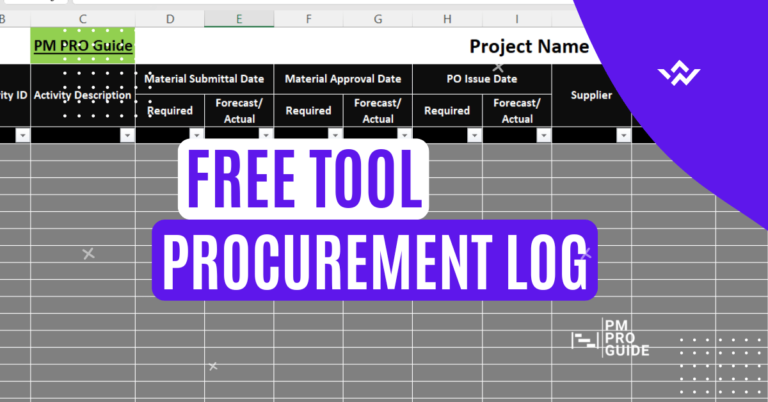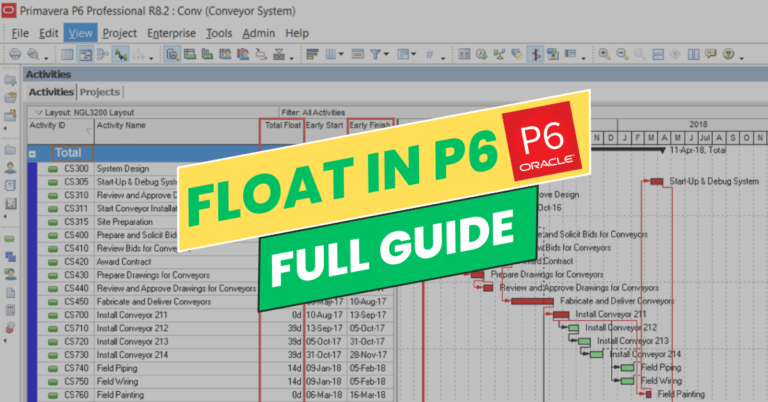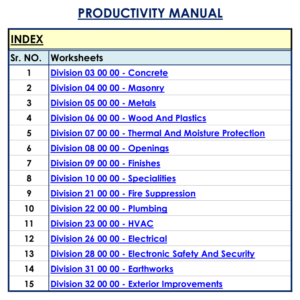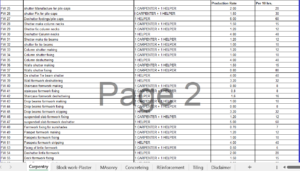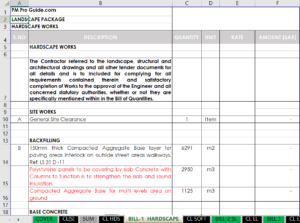Types of Time Schedules is a very common question in the project management planning world. Effective project management requires careful planning and organization. Project planning involves breaking down a project into smaller, manageable tasks and developing a schedule to ensure that each task is completed on time.
A time schedule is an essential component of project planning that helps ensure that projects are completed on time and within budget. In this article, we will discuss the different types of time schedules and their importance in project planning and management.
Types of schedules in most projects are Tender Schedule, Baseline Schedule, Revised Schedule, and Recovery Schedule.
We will discuss every type in this article in detail. First, let’s ask some questions.
Table of Contents
What is a Time Schedule?
A time schedule is a detailed plan that outlines the sequence of activities and the time required to complete each activity in a project. It includes a timeline for each task, the resources required, and the estimated cost for completing each task. A time schedule is developed based on the project scope, budget, and available resources.
Why Do We Need a Time Schedule?
A time schedule is crucial in project planning and management for several reasons. Firstly, it helps identify the critical path of a project, which is the sequence of tasks that must be completed on time to ensure that the project is completed on schedule.
Secondly, a time schedule helps allocate resources effectively, ensuring that resources are available when needed. Finally, it helps stakeholders stay informed about project progress, enabling them to make informed decisions.
Software to Make Time Schedules
Several software tools are available to help project managers create and manage time schedules. These tools include Microsoft Project, Primavera, and Smartsheet, among others. These tools allow project managers to develop and update schedules, track progress, and communicate with stakeholders.
Types of Time Schedules
Tender Schedule
A tender schedule is a preliminary schedule that outlines the proposed timeline for completing a project. It is developed during the bidding process, and its purpose is to provide potential clients with an estimated timeframe for project completion.
The tender schedule is typically created by the contractor or project manager and is submitted as part of the bidding process. This schedule is important as it helps clients compare different proposals and select the one that best meets their needs.
The tender schedule typically includes information such as the start and end dates for each phase of the project, the expected duration of each phase, and any significant milestones that must be met.
It is important that the tender schedule is realistic and achievable, as clients may choose to reject proposals that seem overly optimistic or unrealistic. Once the project has been awarded, the tender schedule can be used as a starting point for developing a more detailed project schedule.
Baseline Schedule
The baseline schedule is the initial, approved schedule for a project that serves as a benchmark for measuring project progress. It is developed by the project manager at the beginning of the project and is based on the project scope, timeline, and budget.
The baseline schedule is important as it helps ensure that the project stays on track and meets its objectives.
The baseline schedule typically includes information such as the start and end dates for each phase of the project, the expected duration of each phase, and any significant milestones that must be met.
It is important that the baseline schedule is realistic and achievable, as it will be used to measure project progress throughout the project lifecycle. Any changes to the baseline schedule must be carefully documented and approved to ensure that they do not impact the project’s overall objectives.
Revised Schedule
A revised schedule is an updated version of the baseline schedule that incorporates changes that have occurred during the project. These changes may include changes to the project scope, timeline, or budget. The revised schedule is important as it helps ensure that the project stays on track and meets its objectives despite any changes that may have occurred.
The revised schedule is typically developed by the project manager as needed throughout the project lifecycle. It is important that any changes to the schedule are carefully documented and approved to ensure that they do not impact the project’s overall objectives.
The revised schedule may be updated frequently in response to changes in the project, and it may also be used to forecast the project’s completion date and budget. By keeping the schedule up to date, project managers can ensure that the project remains on track and meets its objectives.
Recovery Schedule
A recovery schedule is a type of schedule developed to recover lost time in a project. It is created by the project manager when the project is behind schedule, and its purpose is to help the project get back on track. The recovery schedule typically includes a detailed plan for making up lost time, such as adding additional resources or accelerating the schedule.
The recovery schedule is important as it helps ensure that the project is completed on time and within budget. Without a recovery schedule, a project that falls behind schedule may never be completed, or it may be completed at a significantly higher cost.
The recovery schedule is typically created after a thorough analysis of the causes of the delay and the potential solutions for making up lost time.
Comparison Table
| Schedule Type | Contents | When We Need It | Who Makes It | How Often We Need It |
|---|---|---|---|---|
| Tender Schedule | A preliminary schedule outlining the proposed timeline for completing a project | During the bidding process | The Contractor | Once, during the bidding process |
| Baseline Schedule | The initial, approved schedule for a project that serves as a benchmark for measuring project progress | At the beginning of the project | Planning Engineer (Contractor) | At the beginning of the project |
| Revised Schedule | An updated version of the baseline schedule that incorporates changes that have occurred during the project | Whenever there are changes to the project scope, timeline, or budget | Planning Engineer (Contractor) | As needed, whenever there are changes to the project |
| Recovery Schedule | A schedule developed to recover lost time in a project | When the project is behind schedule | Planning Engineer (Contractor) | As needed, when the project is behind schedule |
This table describes every kind of time schedule and its contents. It also tells us when we need it and who is in charge of creating the schedule also how often we need it.
As you see time schedule is planning engineer jobs most of the time, do you know what else is considered planning engineer duties and responsibilities? We made a full article discussing this topic here
Planning Engineer Job Description: Duties, Skills, and Requirements
FAQ
Q: What is the difference between a baseline schedule and a revised schedule?
A: A baseline schedule is the initial, approved schedule for a project, while a revised schedule is an updated version that incorporates changes that have occurred during the project.
Q: When is a recovery schedule needed?
A: A recovery schedule is needed when a project falls behind schedule and additional measures are required to get it back on track.
Q: Who creates the tender schedule?
A: The tender schedule is typically created by the contractor or project manager and is submitted as part of the bidding process.
Q: Why is it important to have a schedule for a project?
A: A schedule is important for ensuring that a project stays on track and meets its objectives. It helps to identify potential issues before they occur and allows for effective management of resources and timelines.
Conclusion
In conclusion, project scheduling is a critical component of project management. Different types of schedules serve different purposes, and it is important for project managers to understand the differences between them.
By using the appropriate type of schedule at each stage of the project, project managers can ensure that the project stays on track and meets its objectives.
Additionally, the use of software tools can help to streamline the process of creating and managing project schedules, making it easier for project managers to stay organized and on top of project timelines.





